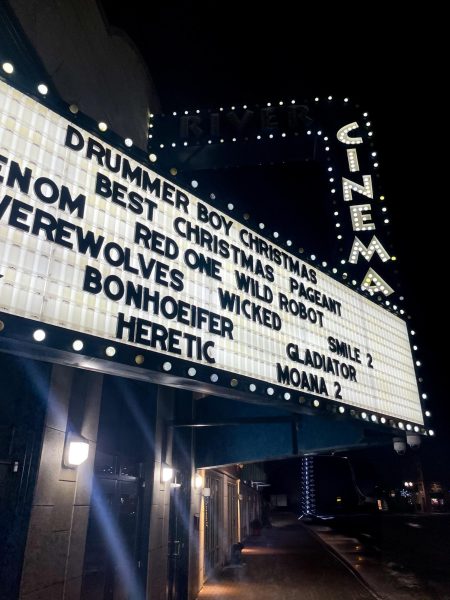Losing fun for the sake of art
Art doesn’t need to be fun. This is a phrase that a lot of films take for granted, thinking that it doesn’t need to be fun under the guise of art.
Take, for example, the works of director Baz Luhrmann. His films always claim to have a deep and interesting message, but when it comes down to it they lack any deeper meaning. Whether it be “Romeo + Juliet” and its question of what if “Romeo and Juliet” was set in modern day America, to the profound statement made in “The Great Gatsby,” that the 1920s were kind of like today.
These films lack any substance beyond a very obvious and shallow message; claiming to be art as a defense for the fact that they aren’t fun to watch.
But films — and all art — can be fun without needing to sacrifice any artistic meaning. Just look at the action films of the 1980s. Films like “They Live,” “Rambo,” “Robocop” and many others all managed to be fun, while still having a much deeper meaning to their stories.
“They Live” is a film by visionary horror director John Carpenter. In it, a hard working drifter, played by then WWF superstar “Rowdy” Roddy Piper, discovers a pair of sunglasses that allow him to see that all of capitalism is a mind control program designed by alien invaders that intend to make humans working class slaves. While being one of the cheesiest films I have ever seen — at one point Piper says the line “I am here to kick ass and chew bubblegum, and I’m all out of bubblegum,” — it still has a deeper message about the structure of capitalism in the United States and the lack of social mobility that it creates.
“First Blood,” otherwise known as the first Rambo movie, for all of its explosions and fight scenes, had a deeper message about PTSD and the effects that it can have on soldiers returning from war. It managed to be entertaining while still maintaining a deeper message.
Similarly, the original “Robocop,” had buckets of fake blood and gore, and more than enough violence to keep the average viewer entertained, but it also had a deeper message about the dangers of our consumer culture. It told about the dangers of unchecked corporate power, and how it can negatively impact society.
Although a lot of this meaning would be lost in the sequels to these films, they still managed to be entertaining and have a much deeper meaning than a lot of art that prides itself on being anything but fun.
Films like these manage to engage the audience while providing a message that can be thought about. Many films try to hide behind the wall of not being a fun movie without having the deeper meaning to back it up.
Now as more and more films attempt to segment themselves into the camps of fun mindless action or artistic endeavors, these films become important reminders of how a film can still be fun while having a purpose.
Alex Bertsch is the opinion editor of The Dakota Student. He can be reached at [email protected].






